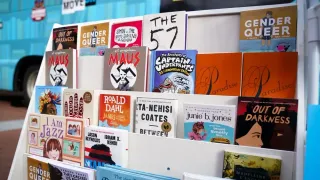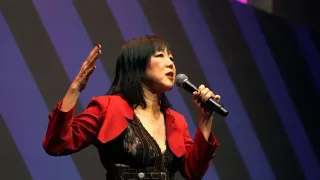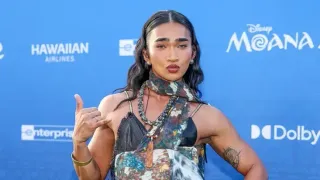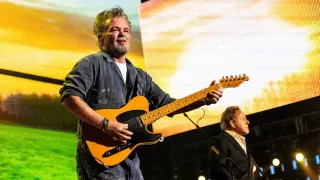March 9, 2015
New York City Marks International Women's Day With March
Jason St. Amand READ TIME: 3 MIN.
Thousands of men and women from around the world stopped traffic in midtown Manhattan on Sunday, passionately raising their voices for women's rights.
"Women's rights are human rights!" some shouted amid a cacophony of car horns, drumbeats and police commands.
The afternoon march started in Dag Hammarskjold Plaza opposite the United Nations, ending hours later in Times Square. Participants called for equality for the gender that traditionally is paid less for work and often has a smaller voice in policy decisions.
"Today, you are marching in the footsteps of generations of feminists," said New York City's first lady, Chirlane McCray, noting that International Women's Day commemorates the day in 1908 when thousands of women marched through the city demanding shorter hours, better pay and voting rights.
Established by the Socialist Party of America, the celebration spread to communist and socialist countries, especially the former Soviet Union, where Vladimir Lenin made it an official holiday.
"This march started more than a century ago, but we still have a long way to go before we get to equality," McCray added.
She pointed to universal prekindergarten, paid sick leave and other causes that her husband, Mayor Bill de Blasio, has emphasized as a mark of progress for women in New York City. In November, New York joined the U.N.'s Safe Global Cities Initiative, which works to combat sexual harassment and violence in public places.
Caeli Waldron, 26, flew in from Los Angeles to lead a contingent of high school students marching as part of a program called Girls Learn International, which involves American youth in the global movement for girls' education.
"Women's inequality affects men because we're all fighting for equality in various ways, we're all connected - whether it's racial or gay or economic rights," said Waldon, adding that if, for instance, a man is married to a woman earning less for equivalent work, "your family is not going to be as stable."
Another marcher hoisted a sign that read: "If women are equal, men are free."
A salient issue on Sunday was rape - whether in India, where in recent months it has become a divisive and very public issue, or in the United States.
Dev Singh, 14, came from Pennsylvania with a group of about 100 teens and adults belonging to a spiritual movement called the Sant Nirankari Mission that originated in India.
"We believe in equality, and the key to respecting everyone is love," the boy from Chadds Ford, outside Philadelphia, said after crossing Manhattan to the beat of a drum pounded by another youth in the group.
Speakers at the U.N. headquarters gathering preceding the march included Nobel prize winner Leymah Roberta Gbowee, a peace activist from Liberia.
She acknowledged the men who joined the women for the march, calling them "men sisters."
U.N. officials say much has been achieved under the Beijing Declaration and Platform for Action, signed by 189 governments in 1995 as a pledge for realizing women's rights. But U.N. Secretary-General Ban Ki-moon said the gains have been too slow and uneven.
He said the most urgent issue is rape being used as a war weapon, from Nigeria and Somalia to Iraq and Syria.
"We don't need any words, we need global action," the secretary-general said. "All the women must be at the front and center of our world."






